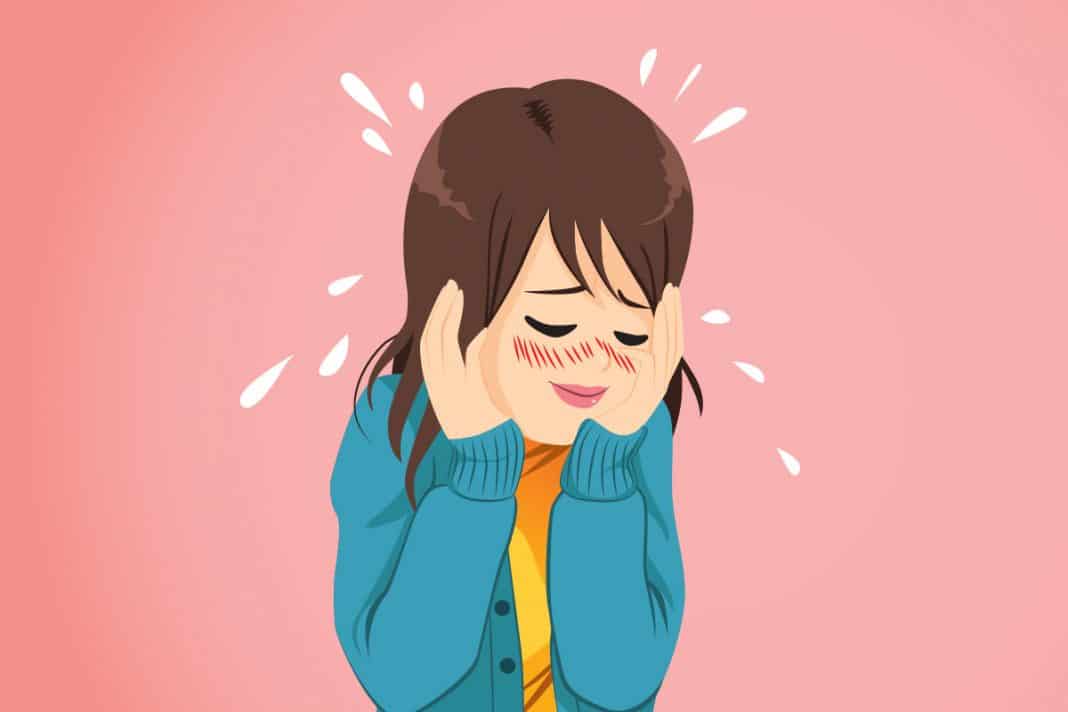When you’re at a party, do you tend to hover around the food table to avoid having to make conversation? At work, do you eat at your desk because the lunchroom is full of people looking to chat? Do you focus on a core group of friends and rarely attempt to expand to new people?
If you answered “yes” to any or all of these questions, you’re likely a shy person, and socializing can be a stressful experience. Know that you’re not alone. An 17 million Americans contend with some degree of social anxiety. If it’s affecting the quality of your life, and you’d like to get better at talking to new people, there are techniques you can try that will help you open up and socialize with less fear.
1. Rehearse Conversation Starters
Starting a conversation is often the scariest part of meeting new people. Once you’ve broken the ice, it’s easier to keep the ball rolling. Instead of fretting about what you might talk about, prepare a few opening lines you can use to approach others comfortably.
At a party, you might ask, “How do you know our host?” or “I see you’re drinking/eating X. Is it worth trying?”.
Compliments are also a great option. People like to hear nice things about themselves, creating an instant connection. You might say, “That’s a great jacket. Where did you find it?”. People are usually happy to tell you more about themselves, especially if you’re genuinely interested.
When asking questions, keep them open-ended. Yes or no questions tend to generate short answers that don’t offer room to continue the conversation. Instead of, “Do you like to watch football?” ask, “What’s your favorite sport, and what teams do you follow?”.
2. Shift Your Focus to the Other Person
Shy people tend to be self-conscious in challenging social situations, leading them to be “in their head”. This defense mechanism actually increases social difficulties because it focuses your thoughts on how you’re behaving and what you’re going to say next instead of listening to the other person.
You can shortcircuit this reaction by consciously shifting your focus to the person you’re speaking with. When you find yourself worrying about what to say next, willfully move your attention back to what your companion is saying. Listen without concern for how you’ll respond, trusting that whatever you say will be fine, as long as it’s informed by what the other person said.
Make eye contact and practice active listening. This will help you stay present in your conversation instead of retreating into worry. You won’t have to force your responses if you’re paying close attention to the other person.
3. Remind Yourself of Your Strengths
When you’re feeling insecure, it can be difficult to stay in touch with your strengths — nothing about you feels good enough. To combat this, make a list of your positive attributes. Are you funny, kind, helpful, or empathetic? Create a list of these and the rest of your commendable qualities, and then read through them when you fall into self-doubt.
Remind yourself that negative emotions are temporary. You might question your intelligence when you’re having a tough time making conversation, but you knew you were smart when you added that quality to your list. When you doubt yourself, remember that your list is a more accurate description of you than your negative inner voice.
4. Don’t Listen to the Voice in Your Head
That negative voice in the back of your head doesn’t have your best interests at heart. It’s just your fear beating you up in order to keep you from taking risks. What it’s saying isn’t the truth, and it isn’t helpful long term, so kindly tell it, keep quiet and stop listening.
Remind yourself that people probably like you far more than you give yourself credit for. The judgment and disapproval you feel is actually self-generated. Remove the negative labels you assign yourself. Being shy isn’t something that’s wrong with you. Shy people tend to have rich inner lives. They just have difficulty sharing those lives with new people.
Consciously replace negative internal conversations with positive self-talk. Practice positive affirmations that build you up instead of knocking you down. When you’re confident in your abilities, socializing becomes much easier. Just accept that you have far more to offer others than you imagine.
5. Don’t Empower Bullies
Some people have to diminish others to feel better about themselves. These bullies use insults, jokes, and other hurtful words to seem like “the life of the party” but they shut shy people down in their tracks.
One way to disempower them is to pretend you didn’t hear them. If they make a joke at your expense, simply say, “Sorry. I didn’t hear you. Could you repeat that?” In many cases they’ll let it go, knowing that the moment has passed. If it happens often enough they’ll get the message — you don’t care what they have to say, and you’re ignoring them.
6. Break Out of Your Comfort Zone and Try New Things
Socializing is a skill, and like any skill, it will improve with practice. Shy people, and those that suffer from social anxiety, tend to settle into a safe routine that doesn’t expose them to frightening social situations. Dealing with shyness this way ensures that you’ll never get any better.
Instead, make yourself uncomfortable. Do something you would never consider doing, and trust that you’ll figure out how to navigate your way through. Join a club that revolves around one of your interests. Maybe join a social sports team. It might be painful at first, but it will offer you chances to practice your social skills in a safe setting.
The more you practice, the better you’ll get. The more you see that people react to you positively, the deeper your intuition will register that you have something to offer. Your confidence will grow, further decreasing your social anxiety. Over time you’ll let go of the negative thought patterns that were holding you back.
7. Don’t Worry About What Others Think
We left this for last because it’s one of the most important lessons to learn in your effort to fight shyness.
What other people think of you DOESN’T MATTER.
As long as you’re being the best person you can be, you don’t need to be concerned about what other people think of you. They’re not in charge of your life, you are. They’re not the ones that have to live with the consequences of your actions, you are. If you miss a gathering you were interested in out of fear for what others might think, you’re the one that misses out, not them. Stop giving them so much power over your life.
Eleanor Roosevelt once rightly said, “No one can make you feel inferior without your consent.” People can say what they will, but it only has power over you if you grant it. Most people will like you. Those that don’t aren’t worth worrying about. Just be yourself and don’t lose sleep over those that don’t like it.
So learn to like yourself. You’re a good person and you’re worthy of love. Concentrate on that whenever you start worrying about what others think. You can’t control their reactions. You can’t even know if they’re telling the truth. All that you can do is work to make connections with others. The more you do, the more satisfying your life will become. So reach out and let it happen!



